Gregory Terrace’s most outstanding former students
We asked Brisbane schools to nominate their most outstanding former students and the response was overwhelming. Today we present the most notable alumni of St Joseph’s Gregory Terrace.
Local
Don't miss out on the headlines from Local. Followed categories will be added to My News.
WE ASKED Brisbane schools to nominate their most outstanding former students and the response has been overwhelming. From Supreme Court judges to musicians, artists and more than a few politicians, their lists prove our schools have long been producing leaders in their fields and continue to do so. Today we present the most notable alumni of St Joseph’s Gregory Terrace.
BRISBANE HIGH SCHOOLS ALUMNI HONOUR ROLLS
* Brisbane Girls Grammar School
* St Rita’s College, Clayfield
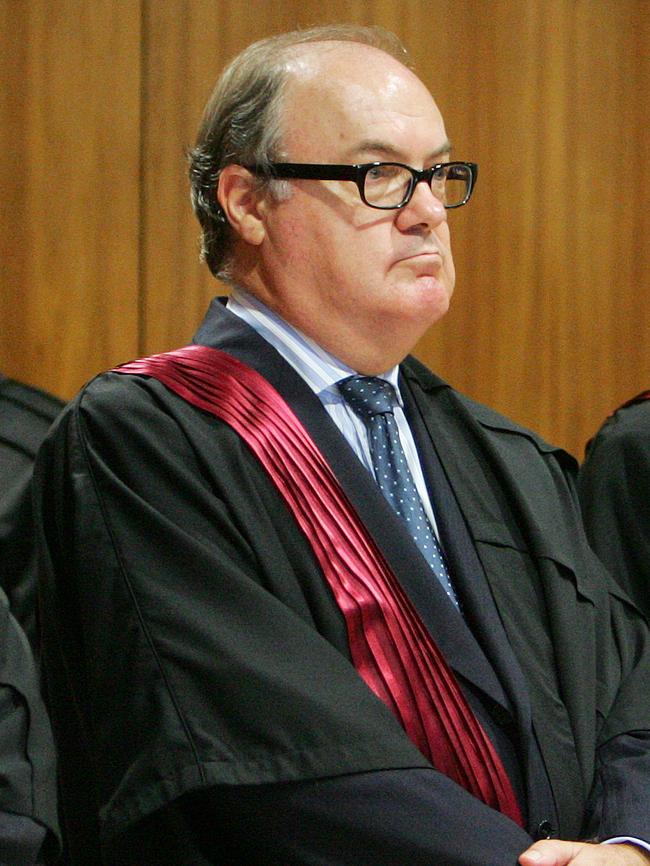
PATRICK KEANE QC
Chief Justice
School captain and dux of Gregory Terrace in 1969, Patrick won an open scholarship in the Queensland Senior Public Examinations.
He studied at the University of Queensland, graduating with a Bachelor of Arts in 1973, and a Bachelor of Laws with first class honours and a University Medal in 1976.
Patrick read for a Bachelor of Civil Law at Magdalen College of the University of Oxford and was awarded the Vinerian Scholarship, which is awarded to the student who “gives the best performance in the examination for the Degree of Bachelor of Civil Law”.
Having earned a Bachelor of Civil Law with first class honours in 1977, he returned to Australia and began his practice at the Queensland Bar the following year.
Patrick was appointed a Queen’s Counsel in 1988 and from 1990–1992 was deputy chairman of the Queensland Law Reform Commission.
In 2005 was appointed a Judge of the Queensland Court of Appeal.
He was made Chief Justice of the Federal Court of Australia in 2010 and three years later became a Justice of the High Court of Australia.
In 2015, he was made a Companion in the General Division of the Order of Australia for his eminent service to the law and to the judiciary, through contributions to improved legal and public administration, as an advocate for increased access to justice, to ethical standards, and to a range of professional organisations.
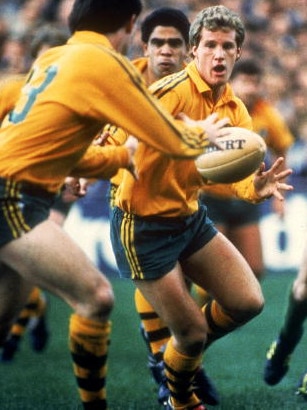
MICHAEL LYNAGH
Rugby union international
Michael’s rugby union talent was evident during his time at Gregory Terrace, where
he played fly-half in the school’s first XV from years 10-12 (1979–1981).
Terrace won the GPS premiership five years straight from 1977-1981, with Michael playing in the final three years and captain in his final year.
He also played First XI cricket from years 9-12 and was captain in his final year.
After leaving school, he played first grade rugby for the University of Queensland and represented Queensland from 1982–1995. He was a member of Queensland’s Super 6 and Super 10 winning sides.
In 1984, at the age of 20, Michael made his rugby union debut for Australia against Fiji in Suva.
He was a member of the 1984 Grand Slam-winning team and was vice-captain when Australia won the 1991 World Cup.
He represented Australia from 1984-1995, being capped 72 times and was captain from 1993 to 1995.
When he retired after Australia’s loss to England in the quarter-final of the 1995 Rugby World Cup, he was the world points scoring record holder with 911 points.
Michael was made a Member of the Order of Australia in 1996, inducted into the Sport Australia Hall of Fame in 1999 and received an Australian Sports Medal in 2000.
He was inducted into the International Rugby Hall of Fame in 2001 and the Wallaby Hall of Fame in 2013.
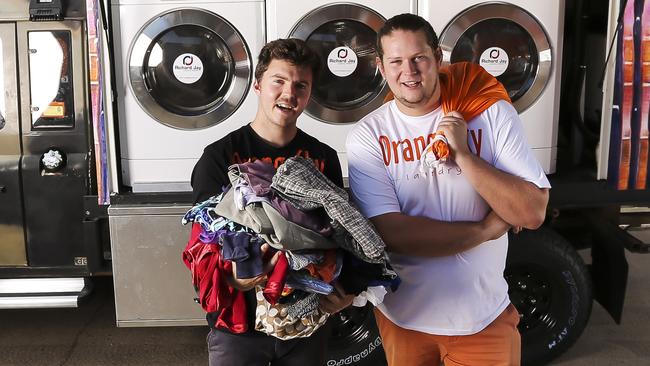
NICHOLAS MARCHESI and LUCAS PATCHETT
Community service
Gregory Terrace schoolmates Nicholas and Lucas were just 20 years old in 2014 when they created Orange Sky Australia - the world’s first free mobile laundry service for people experiencing homelessness.
The pair installed a couple of washing machines and dryers in the back of their old van and visited parks around Brisbane to wash and dry clothes for free.
What started as an idea to improve hygiene standards and restore dignity to people doing it tough has evolved into something much bigger and more powerful.
Orange Sky has since expanded to 29 services across the country, which includes the addition of shower services and remote vehicles. Each week, these vans generate 9.85 tonnes of laundry and provide 136 showers to people in need.
Most importantly, Orange Sky volunteers have so far engaged in almost 200,000 hours of conversations, helping to challenge the perception of homelessness and positively connect communities all around Australia.
The major impact of Orange Sky is not just the washing and drying of clothes but the hours of genuine, non-judgemental conversation that take place between its volunteers and their friends on the street.
In 2016, Nicholas and Lucas were named Young Australians of the Year for their services to the community.
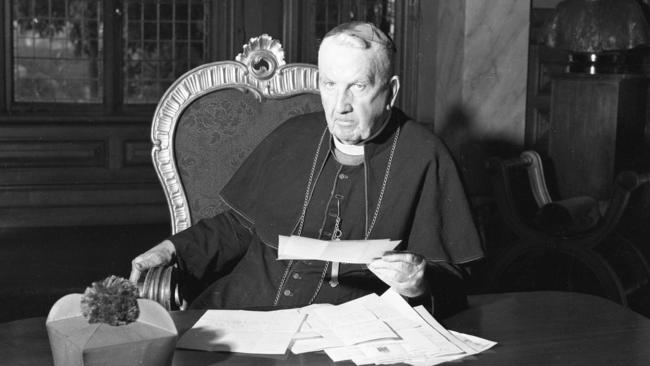
ARCHBISHOP JAMES DUHIG
Archbishop of Brisbane
Born in Ireland, the young James Duhig emigrated to Australia with his family and completed his education at St Joseph’s College, Gregory Terrace.
After undertaking his studies for the priesthood at the Irish College and Pontifical Urbaniana University, both in Rome, he was ordained a priest in 1896
On December 10, 1905, he became the youngest bishop in the Catholic Church when he was consecrated Bishop of Rockhampton.
In February 1912, he was transferred to Brisbane, where he became the coadjutor archbishop to the elderly Archbishop Robert Dunne and in January 1917 succeeded him as Archbishop of Brisbane, a position he held for 48 years until his death in 1965.
In the early years of Archbishop Duhig’s tenure, his archdiocese undertook on an extensive building program, including churches, hospitals and schools, erecting more than 400 buildings and earning him the nickname of “Duhig the Builder”.
He also created more than 50 new parishes and encouraged the establishment of 20 communities of religious men and women.
In 1937, Archbishop Duhig successfully proposed the river road from Brisbane city to Toowong be renamed Coronation Drive, to celebrate the coronation of King George.
He also played a major role in the development of the University of Queensland and was a member of the university senate from 1916 until his death in 1965.
He also established the university’s St Leo’s College, where an annual lecture is given in his honour.
The university recognised his contribution by naming the Duhig Library after him and awarding him an honorary degree of Doctor of Laws.
Archbishop Duhig was appointed a Commander of the Order of St Michael and St George (CMG) in 1954 and made a Knight Commander (KCMG) of the order in 1959.
At the time of his death in 1965, Archbishop Duhig was the longest-serving bishop in the Catholic Church.
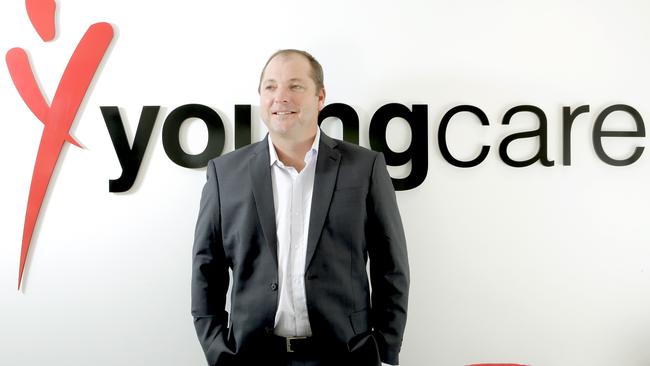
DAVID CONRY
Co-founder of Youngcare
When his late wife Shevaune was battling multiple sclerosis, David realised there was a dire shortage of full-time age-appropriate care facilities available in the region.
It was that experience that drove him, along with three other men, to create Youngcare to provide choices to young people who require full-time care.
The first Youngcare Apartments were opened in the Brisbane suburb of Sinnamon Park in December 2007, catering for 17 people.
In 2012, the second Youngcare Apartments were opened on the Gold Coast, housing seven residents in separate units.
In July 2015, the Youngcare Wooloowin Share House opened its doors for the first time, with the four new housemates living with more independence and choice than ever before.
In June 2017, the Youngcare and MS Queensland Apartments at Albany Creek were opened, catering for eight young people with high care needs.
In 2009, the organisation launched the Youngcare At Home Care Grants program to provide grants of between $2000 and $10,000 for young people with high care needs who are deemed to be at high risk of entering an aged care facility.
Youngcare has facilitated more than $5 million for items such as essential home modifications, equipment and in-home support.
By 2013 the grants program had grown to include application rounds for Queensland, New South Wales, Tasmania, Northern Territory, South Australia and Victorian residents.
The Youngcare Connect phone line aims to connect young people with high care needs and their families and carers to relevant support from the government and the wider health care services sector.
In 2007, David was named Queensland Australian of the Year and in 2009 was the Queensland Social Entrepreneur of the Year.
He was made a Member of the Order of Australia in 2009.
In July 2019, David was named interim CEO of the newly-established Health and Wellbeing Queensland, which works with the community, private sector and all levels of government to drive collaboration and change and educate Queensland about their health.
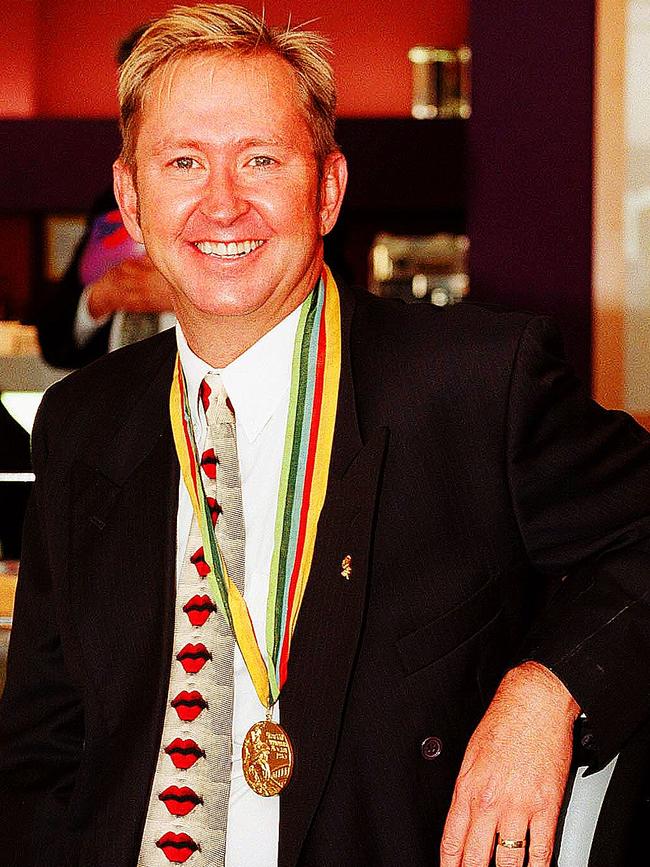
MARK TONELLI
Olympic swimmer
Mark took up swimming to help his asthma and in his first year came third in his age group at Western Districts Club, prompting his mother to send him at age nine to John Keating, a swimming coach who had guided several swimmers to national selection.
By the age of 10, Mark was regularly winning at school carnivals and was selected to represent Australia at the 1973 World Championships, where he came sixth in the 200m backstroke at the age of 16.
He won his first Australian titles in 1974 in the 100m backstroke and 200m butterfly and went on to the 1974 Commonwealth Games in Christchurch, where he won his first major international race, the 100m backstroke, and took silver in the 200m backstroke.
In 1975, Mark won silver in the 200m backstroke at the World Championships in Colombia.
That same year he enrolled in the University of Alabama in the United States, studying and competing in the collegiate sport system.
After a few years of mixed results while based in the US, Mark gained selection for the 1980 Moscow Olympics, where he was given a heavy schedule of six events - both backstroke races, the 100m freestyle and butterfly, and two relays.
He made little impact in the individual events, only reaching one final, but swam butterfly in the medley relay, turning in a memorable performance to help the team to an unexpected gold medal.
On returning to Australia, Mark retired with 11 individual Australian championships in three different strokes.
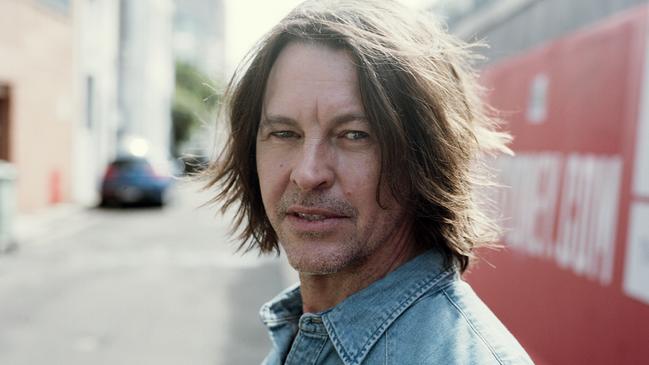
BERNARD FANNING
Musician
Bernard was taught the piano by his mother at an early age and at 15, while attending St Joseph’s College Gregory Terrace, he began writing music.
On graduating from high school, he briefly studied journalism at the University of Queensland but dropped out to pursue a music career after meeting Ian Haug.
Bernard joined Haug, John Collins and Steven Bishop, who had recently formed Powderfinger, and took the role of lead singer.
The band released five studio albums in 15 years and achieved mainstream success in Australia.
During Powderfinger’s hiatus in 2005, Bernard began his solo music career with the studio album Tea & Sympathy, which debuted at No.1 on the Australian ARIA Albums chart and spent 58 weeks in the top 50.
Powderfinger reunited in 2007 and released two more albums before disbanding in late 2010.
Bernard’s second solo album, Departures, was released in June 2013, followed by his third, Civil Dusk, in August 2016.
Bernard plays guitar, piano, keyboards and harmonica, both when performing solo and also with Powderfinger.
Often speaking out against Australian political figures, he has donated much of his time to philanthropic causes and is an advocate for Aboriginal justice in Australia.
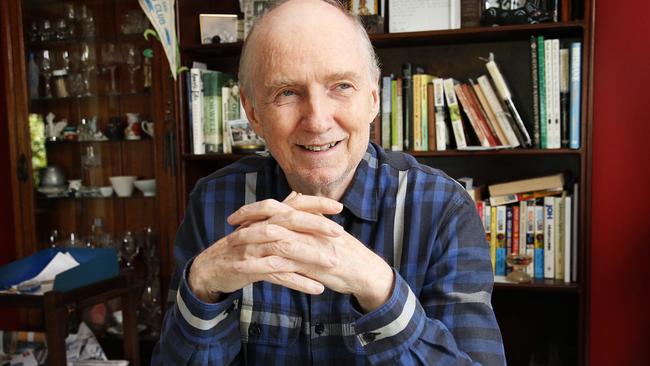
HUGH LUNN
Journalist and author
After leaving Gregory Terrace, Hugh served his journalism cadetship with The Courier-Mail, before working overseas for seven years.
During 1967 and 1968 he covered the Vietnam War for Reuters and in 1969 reported on the Act of Free Choice in West Papua while Reuters’ correspondent in Indonesia.
On returning to Australia, Hugh became Queensland editor of The Australian but when he found himself unemployed at the age of 47, he began to pen a memoir about his childhood.
The result was Over The Top With Jim, which was published in 1989 and became the biggest-selling non-fiction book in Australia for 1991.
Hugh is now famous for a number of autobiographical books as well as Vietnam: A Reporter’s War, which chronicled his time in Vietnam and won the Melbourne Age Book of the Year literary prize in 1985.
He has also written two books on Australia’s lost language - Words Fail Me and Lost For Words - as well as books focusing on the lives of former Queensland Premier Sir Joh Bjelke-Petersen (Joh: The Life and Political Adventures of Johannes Bjelke-Petersen) and media mogul Rupert Murdoch (Working for Rupert).
Hugh has won three coveted Walkley Awards, including one in 1974 for six feature articles he wrote about dealing with the Brisbane floods.
In 2009, as part of the Q150 celebrations, Hugh was named one of the Q150 Icons of Queensland for his role as an “influential artist”.
In November 2018 he was inducted into Australia’s Media Hall of Fame at a dinner in Melbourne.
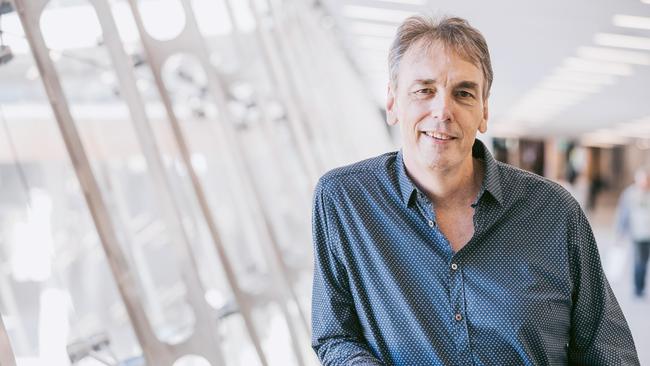
PROFESSOR PETER DONNELLY
Scientist
Peter is Professor of Statistical Science at the University of Oxford and chief executive of Genomics, a company which harnesses genomic data to transform health care.
He has dedicated his career to statistics and genetics, through the leadership of many pioneering national and international human genetics studies, and the development and application of sophisticated statistical methods to large scale genomic data.
Peter has made seminal contributions to statistics and its application to human genetics for more than 30 years.
The analytical methods he developed have been used extensively and underpin the scientific world’s ability to undertake modern genetic research. He has also led many of the major national and international projects in the field
Genomics, the company he co-founded in 2014, has developed the largest database of its kind in the world, linking genetic variants at 14 million positions in our DNA to over 10,000 measurements on people, including disease outcomes, biomarkers, and molecular and cellular traits.
The company uses sophisticated statistical and machine learning tools to interrogate the data to learn about the connections between genetics and disease.
Genomics uses this approach in precision health and predictive disease prevention, through polygenic risk scores, and in drug discovery, to identify new drug targets and to assess the likely efficacy and safety of novel medicines.
Elected as a Fellow of the Royal Society of the Academy of Medical Sciences and Honorary Fellow of the Institute of Actuaries, Peter was awarded a knighthood in the 2019 Queen’s Birthday Honours List for services to the understanding of human genetics in disease.
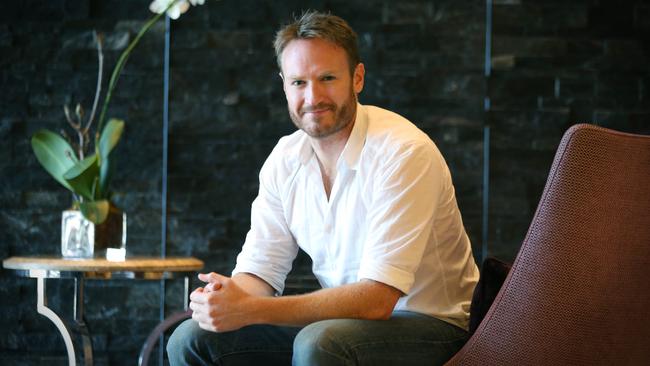
JOSH LAWSON
Actor
After leaving Gregory Terrace, Josh studied at the National Institute of Dramatic Art, graduating in 2001, then spent a year studying improvisation techniques in Los Angeles.
He is a familiar face on Australian television, with roles in such popular programs as Blue Heelers and Home and Away, and is known for his appearances on the improv comedy program Thank God You’re Here and Australian dramas Sea Patrol and The Librarians.
He also had a guest role in the comedy Wilfred and starred in several television commercials.
In 2017, he played the title role in Hoges: The Paul Hogan Story.
Josh has also appeared on the big screen, making his feature film debut in BoyTown in 2006.
He had the starring role in the 2012 Australian comedy film Any Questions for Ben? and appeared alongside Will Ferrell and Zach Galifianakis in the 2010 comedy The Campaign, as well as Anchorman 2: The Legend Continues.
His feature directing debut The Little Death, which he also wrote and starred in, was released in 2014.
Josh was nominated for an Academy Award for Best Live Action Short Film in 2018 for The Eleven O’Clock, a short film he wrote and starred in.
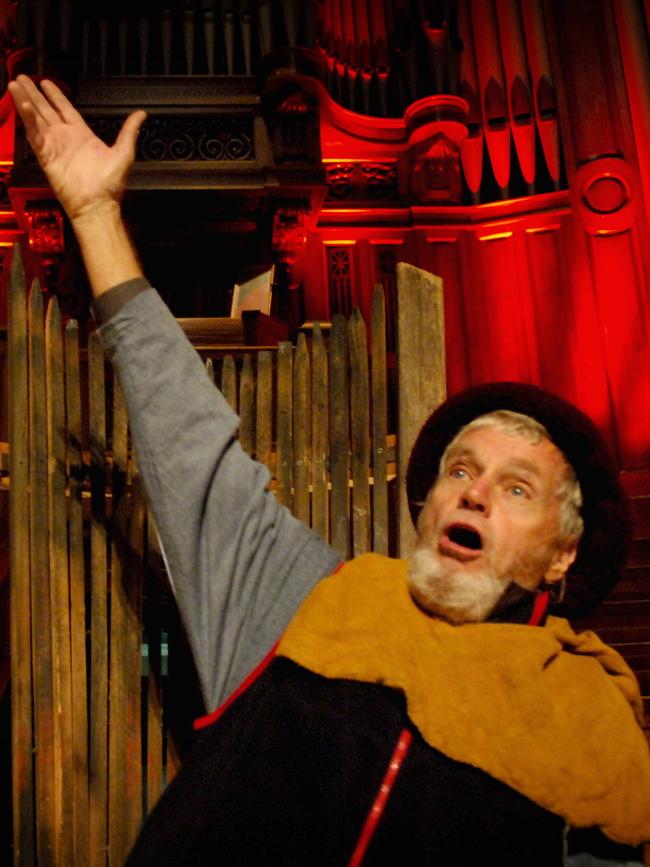
PAUL SHERMAN
Poet and playwright
Paul had a stint as a cadet journalist before studying at Queensland University and working as an English and drama teacher, journalist and actor in Queensland and Victoria in the late 1950s.
During his career with the Queensland Department of Education he taught in state high schools at Murgon, Banyo, Kedron and Pine Rivers and also served as a lecturer at the then Kedron Park Teachers College.
Paul was an inspiring classroom teacher and his students benefited from his passion for, and deep knowledge of literature.
In 1975 he resigned from Kedron Park Teachers College to tour Queensland for the Arts Council, presenting literature in the schools - mostly one-man performances of Shakespeare.
Paul contributed much to so many communities in the cause of poetry, especially youth and emerging voices, over so many years, without seeking any recognition or acknowledgment.
In 2010 he won the Peter Botsman Award, which is given by the English Teachers Association of Queensland to recognise the contributions made to excellence in English education in Queensland.
The Paul Sherman Community Poetry Award was created in his honour and is given during the Queensland Poetry Festival to recognise individuals who have significantly contributed to Queensland poetry.
Paul passed away in 2015, the same year he was awarded the OAM for his services to the arts as a poet, playwright and to education.
He left behind a legacy of invaluable contributions, not only within Queensland but all over the country - as poet, performer, actor, teacher, mentor, playwright and advocacy of poetry as an art form.
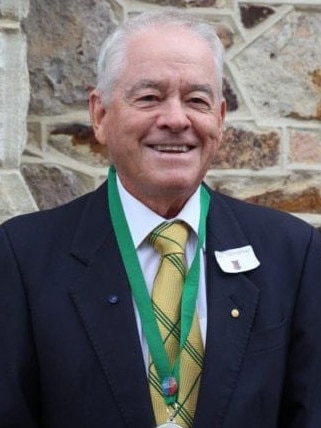
RON HAMBLETON
Charity worker
Ron joined the St Vincent de Paul Society in 1955, not long after leaving school, and is still a stalwart of the organisation in which he has held many senior leadership positions.
Trained as a dentist in the Army, he took up private practice when he left the service and has been instrumental in providing lifesaving dental treatment in India, Papua New Guinea and East Timor.
That work began in the late 1990s when Ron made a self-funded trip to provide dental treatment for children living in the Madris Institute to Habilitate Retarded Afflicted.
For a month he performed dental checks and extractions for children with significant health issues and was able to pass on knowledge and technology to assist in the facility’s future.
A few years later, he and his wife Joy were part of a small team which raised funds to buy
$40,000 worth of dental equipment that was taken to the Raihu Health Centre in Papua New Guinea.
There they set up a dental surgery, trained the area’s only dental technician and saw around 600 patients during the month.
Ron later made a similar trip to East Timor, taking a portable dental clinic and new equipment and spending several weeks in the portable clinic treating local people.
Before his retirement, Ron made a final trip to Kiribati.
In 2004, he was awarded the Order of Australia in the General Division for service to the community through the St Vincent de Paul Society Queensland and internationally through the provision of voluntary dental services.
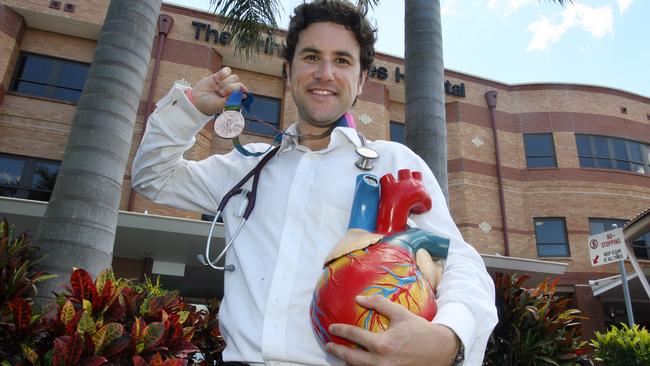
DR MICHAEL TOON
Olympic rower
Michael was diagnosed with congenital heart disease and underwent open heart surgery at the age of three. At seven he was fitted with a pacemaker.
Barred from contact sport, he took up rowing as a cox at Gregory Terrace.
In 1996 he was a late call-up into the school’s First VIII that won the Head of the River title.
The following year he was selected to cox the Queensland youth eight to contest the Noel F Wilkinson Trophy at the interstate regatta within the Australian Rowing Championships.
On 12 consecutive occasions from 1998-2009, Michael was selected to cox the Queensland men’s senior eight contesting the King’s Cup at the Interstate Regatta.
In Toowong Rowing Club colours he steered numerous crews in national championship title attempts at the Australian Rowing Championships.
He coxed composite Queensland lightweight eights contesting the Australian lightweight eight championship from 2005-2008 and in 2007 he was in the stern of the composite Queensland four which won the Australian coxed four national title.
Michael made his Australian representative debut aged 17 when he steered a coxed four to fifth place at the 1996 World Rowing Under 23 Championships.
In 1997 he was in the stern of the Australian Under 23 men’s eight at the World Rowing Cup and then competed at the 1997 World Rowing Championships.
He remained a member of Under 23 eights in international competition through until 2000, including a gold medal win at the 1998 World Under 23 Championships and silver two years later.
In 2001 Michael took the ropes of the Australian senior men’s eight for the World Rowing Cup IV in Munich and the 2001 World Rowing Championships in Lucerne.
At the 2002 World Rowing Championships he coxed both an Australian four and a pair and in 2003 coxed the Australian eight in the World Championships.
In 2001 Michael took the gamble of moving to Sydney to push for a place at the Athens Olympics, which paid off with selection in the bronze medal-winning crew.
Having qualified as a pharmacist in 2002, he returned to Brisbane in 2007 and studied medicine at the University of Queensland, graduating in 2010.
He is now an anaesthetist at the Mater Hospital and still competes in the Queensland Master’s Eight.
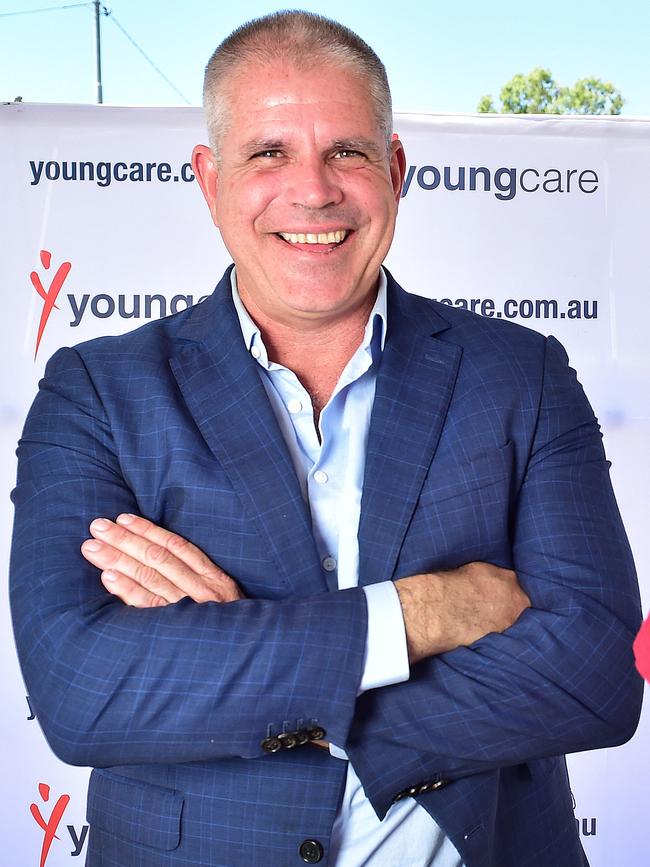
ANTHONY RYAN
Charity worker
An aspiring athlete in his younger years, injury robbed Anthony of a place in the 1990 Commonwealth Games 400-metre relay team.
In 1993, during a break from his stockbroker studies at Queensland University, he joined his older brother Matthew working with the Catholic Worker Movement to help the poor in Washington DC.
The experience changed his outlook on life and he gave away his stockbroking dreams to study teaching at the Australian Catholic University.
After a stint at St Joseph’s Nudgee College, Anthony was invited to teach at Gregory Terrace, where he partnered with Br Damien Price and together, in 1998, they created Eddie’s Van.
The scheme focused on providing meals for the city’s homeless, with the school’s year 11 boys lining up for food alongside the homeless at St Vincent’s De Paul in South Brisbane.
After he left Gregory Terrace to become deputy principal at St Patrick’s Shorncliffe, Anthony helped set up a second van called Paddie’s.
It was during this period that he also established the Mimiki Foundation, raising funds to help marginalised youth in South Africa.
The foundation was inspired by a six-year-old girl he had met in the shanty town of Kroonstad, outside Johannesburg, during a trip overseeing young student leaders in late 2005.
Sadly, Mimiki died in 2007 but her spirit lives on in Anthony’s work.
In 2009, he was named a Queensland Great and in 2010 was appointed CEO of the Edmund Rice Foundation, the network of former Christian Brothers’ projects that supports international social development in the developing world.
In 2016 he was appointed CEO of Youngcare, an organisation created to provide accommodation choices, funding and access to information for young people who require full-time care.
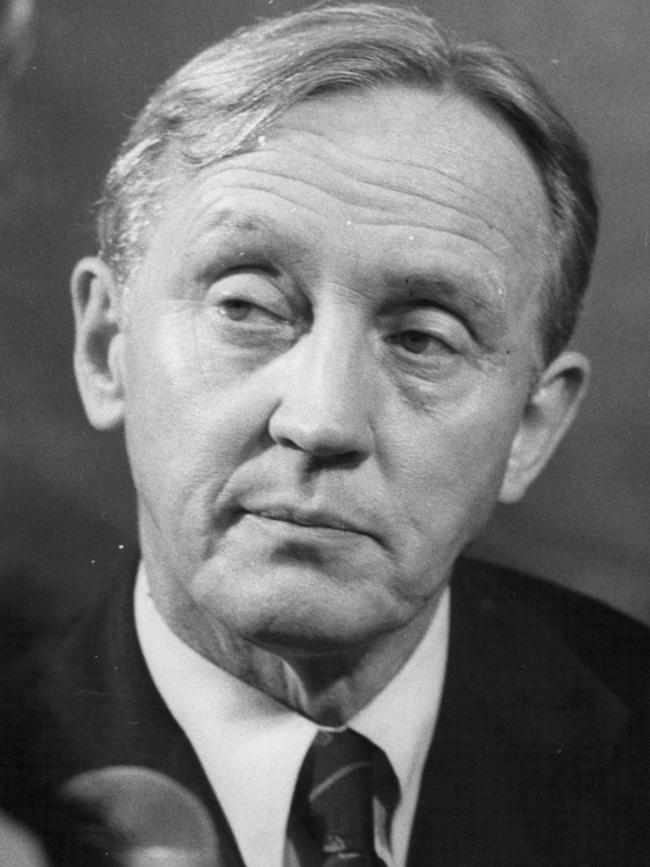
HARRY WINDSOR
Heart surgeon
Born in Ireland, Harry came to Australia with his family in 1916.
After leaving school he trained at Queensland University and then the University of Sydney, graduating in 1939 with a Bachelor of Medicine.
He worked at St Vincent’s Hospital, Sydney, for a number of years and pioneered several surgical procedures.
Harry served as a doctor during World War II with the Australian Army Medical Corps of the Citizen Military Forces, and then with the Australian Imperial Force.
He served mostly in New Guinea, achieving the temporary rank of Major.
After the war Harry returned to work again at St Vincent’s Hospital.
Responsible for carrying out Australia’s first heart transplant in 1968, he was a mentor to renowned heart surgeon Victor Chang.
Harry retired from St Vincent’s Public Hospital and from operative surgery in October 1979.
He passed away in March 1987 at Darlinghurst.
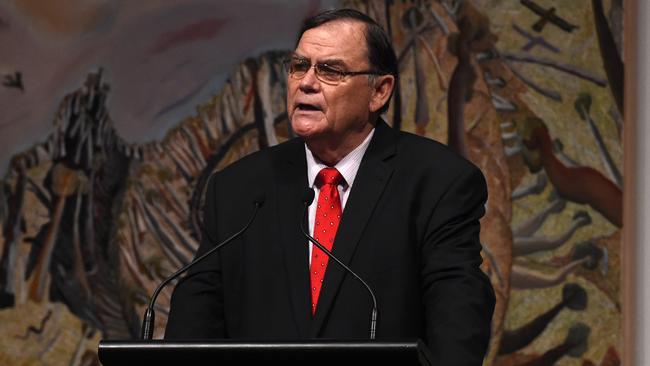
MATTHEW FOLEY
Politician and lawyer
After being a social worker in family and child welfare and with the Aboriginal and Islander Legal Service, Matthew studied law and was admitted to the Bar in 1983.
He was a lecturer and sub-dean of the Social Work Faculty at Queensland University from 1981-1983.
Matthew also served as chairperson of the Social Security Appeals Tribunal from 1983-1986; president of the Queensland Council for Civil Liberties from 1985-1987; a member of the Criminal Law Sub-Committee of the Bar Association of Queensland and of the National Consumer Affairs Advisory Council from 1988-1989 and national president of the Labor Lawyers Association in 1989.
In 1989 he was elected to state politics as the Labor Member for Yeronga and from 1992 served as Queensland Attorney-General and Minister for the Arts, among other roles in the Wayne Goss Government.
In Opposition from 1996-1998, he served as was Shadow Attorney-General.
When Labor won government under Peter Beattie in 1998, Matthew was appointed Minister for the Arts, Attorney-General and Minister for Justice.
At the 2001 election, his seat was abolished and he successfully contested Yeerongpilly.
He was appointed Minister for Employment, Training and Youth, keeping his responsibility for the Arts but leaving his legal portfolios.
Matthew retired from politics in 2004.
During his time as Attorney-General his major achievements included introducing Queensland’s first legislation on de facto property rights for opposite and same sex couples, and the Guardianship and Administration Act 2000, which enhanced access to justice for people with a decision-making incapacity.
He was also widely credited with making the Bench more inclusive and representative of wider society and specifically appointing more women.
Matthew is now an Adjunct Professor of Social Work at the University of Queensland, where he delivers lectures to undergraduate and post-graduate students on laws governing child protection, family law, mental health and migration.
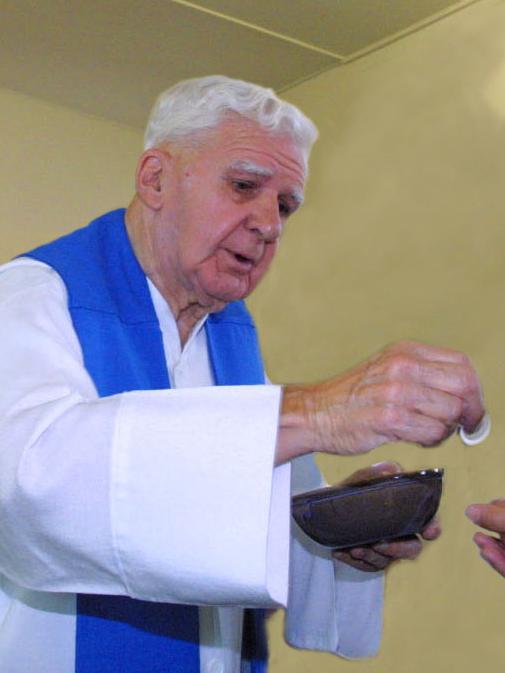
FR JACK ROSENSKJAR
Military chaplain
Ordained as a priest in 1940, Fr Rosenskjar was still a young man when he joined the Australian Army as a military chaplain.
He joined the 25th Battalion (Darling Downs Regiment) and served at Milne Bay during the Japanese occupation, during which time he ministered to members of the battalion - most of them young men fighting and dying a long way from home.
Fr Rosenskjar’s last army posting outside Australia was with the pidgin-speaking Pacific Island Regiment. At the same time he was parish priest of a large Catholic village in Rabaul.
On his return to Australia from PNG, but still with six months duty to perform, Fr Rosenskjar became the last Catholic Military Chaplain to serve at Greenslopes Hospital.
At that same time the parish priest of Holland Park, Mons David Dee, was due to go home to Ireland and had asked Archbishop Duhig if Fr Rosenskjar would be able to replace him.
In January 1947 he moved into the Holland Park presbytery, beginning a long association with the greater Holland Park-Mt Gravatt area which in those years stretched out to Woodridge, Eight Mile Plains and Wishart.
On New Year’s Eve 1950 he became parish priest of Mt Gravatt.
Fittingly, in 1960 Fr Rosenskjar was present at the blessing and opening of the new St Agnes Church on Logan Rd, which is dedicated to the memory of Australian troops who died at Milne Bay.
When he passed away in late 2013, Fr Rosenskjar was Brisbane Archdiocese’s oldest priest.

DANIEL FITZGIBBON
Paralympic sailor
Having sailed since the age of five, Daniel joined the Royal Queensland Yacht Squadron aged 14.
In March 1997, he was left a quadriplegic after an incident at the Middle Harbour Yacht Club jetty.
Daniel then took up disabled sailing and in 2004 won his class at the Disabled Sailing World Championship and was joint winner of the Disabled Sailor of the Year title.
Three years later, Daniel partnered with Rachael Cox in the SKUD International Championships, where they won a gold medal. They were jointly named as Sailors of the Year with a Disability.
The two teamed up again in the 2008 Beijing Paralympics in the SKUD 18 class and won the silver medal.
The class, which premiered at the 2008 Games, was created when Daniel convinced the International Foundation for Disabled Sailing to adapt the class to allow two sailors with disabilities to participate.
He and Rachael were again jointly named the Sailors of the Year with a Disability.
After seeing Liesl Tesch in an SBS documentary about the boat Sailors With Disabilities competing in the Sydney to Hobart Yacht Race, Daniel contacted her in late 2010 and they formed a sailing partnership.
They won gold at the ISAF World Cup in January 2011 and bronze at the IFDS World Championships in July the same year.
They were subsequently jointly named as Sailors of the Year with a Disability, the fourth time Daniel had won the award.
At the 2012 London Paralympics, they won a gold medal in the Mixed Two Person SKUD18 and were named Paralympics Australia’s Team of the Year
They won gold at both the 2014 and 2015 IFDS World Championships before making it back-to-back Paralympic gold medals by winning the SKUD18 at the 2016 Rio Paralympics.
Daniel was awarded an Order of Australia Medal in the 2014 Australia Day Honours “for service to sport as a gold medallist at the London 2012 Paralympic Games.”
In November 2014, he shared the Yachting Australia Sailor of the Year with a Disability award with several sailors, including Liesl Tesch.
Together they won the 2014 NSW Sports Award for Team of the Year with a Disability and Yachting Australia’s 2015 Sailor of the Year with a Disability award.
In 2017 they were inaugural inductees to the Australian Sailing Hall of Fame.
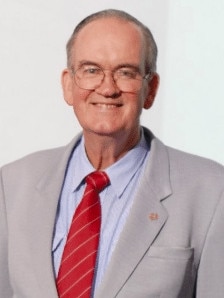
BR BARRY BUCKLEY
Principal
Headmaster at St Joseph’s Gregory Terrace from 1973-81, Br Buckley was known for his remarkable dedication and quality service through school administration and system level governance.
In 2007, he was awarded a Fellowship of the Australian College of Educators.
The awards are granted to educators who have been judged by their peers to have made an outstanding contribution to education in Australia.
Br Barry Buckley was awarded the Fellowship for an outstanding contribution to education within the non-government sector for more than 50 years.
The following year he was made a Member of the Order of Australia for his service to education through leadership and development roles in Catholic schools and to religious life through the congregation of the Christian Brothers.
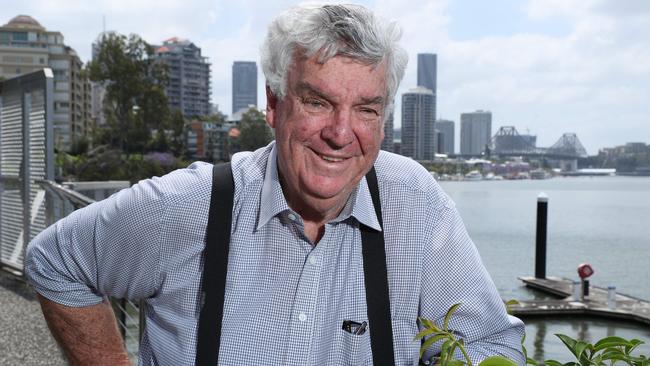
SENATOR RON BOSWELL
Politician
Ron was a career politician who represented Queensland as a National Party Senator for more than 30 years, from 1983-2014.
When he retired from politics, he was the Senate’s longest-serving member.
Ron held many positions in the Coalition shadow ministry including Shadow Minister for Regional Development and External Territories, Shadow Minister for Northern Australia and External Territories and Shadow Minister for Consumer Affairs.
He was Leader of the Nationals in the Senate for 17 years from 1990 and Parliamentary Secretary to the Minister for Transport and Regional Services from 1999-2003.
He was succeeded as senate leader by Nigel Scullion following the 2007 election, and became Mr Scullion’s deputy, holding that position until 2008.
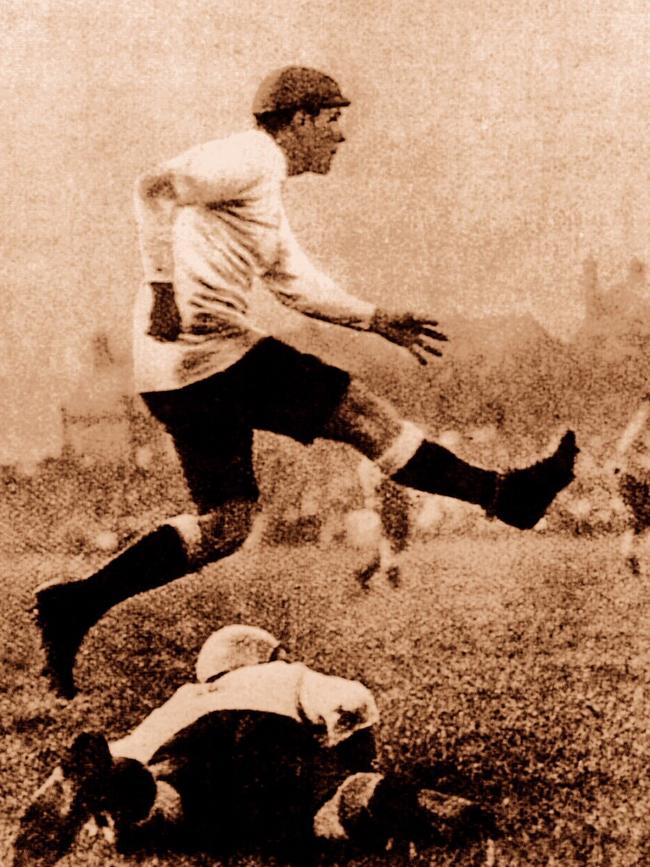
PHIL CARMICHAEL
Rugby union international
One of the early rugby internationals to emerge from Gregory Terrace, Phil made his debut for the Wallabies against Great Britain in Brisbane on July 23, 1904.
He was selected in Australia’s inaugural national rugby team to tour the northern hemisphere - Dr Paddy Moran’s First Wallabies for the 1908-09 Australia rugby union tour of the British Isles and France.
On that tour the team won gold at the 1908 Summer Olympics.
Phil ultimately played four Tests for Australia.
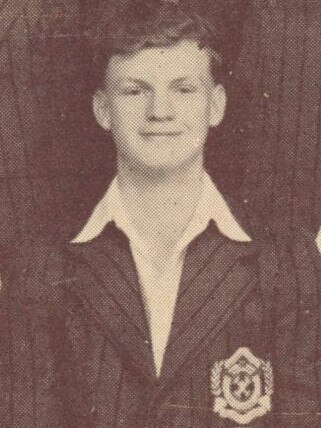
DR FRANK SULLIVAN
Ophthalmologist
Since graduating from Queensland University in 1954 with a Bachelor of Medicine and Bachelor of Surgery, Dr Sullivan has spent most of his career working in Brisbane and London.
A general ophthalmologist with interests in cataracts and medical retina, he has served in a number of key roles including Federal President Royal Australian College of Ophthalmologists from 1988-89.
Dr Sullivan was clinical senior lecturer with the Department of Surgery at Queensland University from 1960-2001 and has been a visiting ophthalmologist with the Department of Defence at Gallipoli Barracks, Enoggera.
He has also been a visiting ophthalmologist to Norfolk Island and visiting senior specialist at the Royal Brisbane Hospital’
From 1954-1986 he was a captain with the Royal Australian Army Medical Corps (Reserve of Officers).
In 1985 he was one of the founding members of Terrace Eye Centre on Brisbane’s Wickham Tce, remaining there until 2008.
He has received the OAM in recognition for his work in the medical field, particularly ophthalmology.

SENATOR JOHN HOGG
Politician
Brisbane born and bred, John studied at the University of Queensland, graduating with a Bachelor of Science.
He later completed a Diploma in Primary Teaching at the Kedron Park Teachers College and taught at both primary and secondary schools.
John joined the ALP in 1976 and was an official with the Shop, Distributive and Allied Employees Association from 1976-1996.
He became a member of the ALP’s Administrative Committee in 1982 and eventually a representative on the national executive.
He continued to rise within the party, becoming chair of the ALP National Policy Committee (Government Administration) in 1991.
In 1996 he as preselected as first candidate on the ALP ticket for the Queensland Senate.
He was elected and took office as Senator in July 1996.
In August 2002, John was elected Deputy President and Chairman of Committees and after the ALP won government in 2007, was elected President of the Senate.
He did not contest the 2013 federal election.


